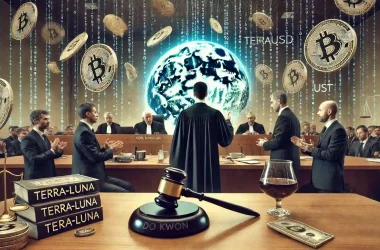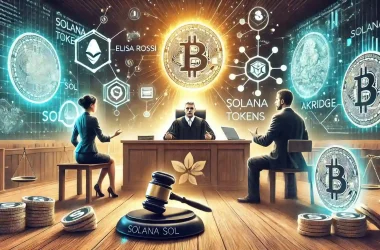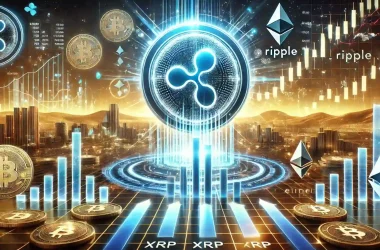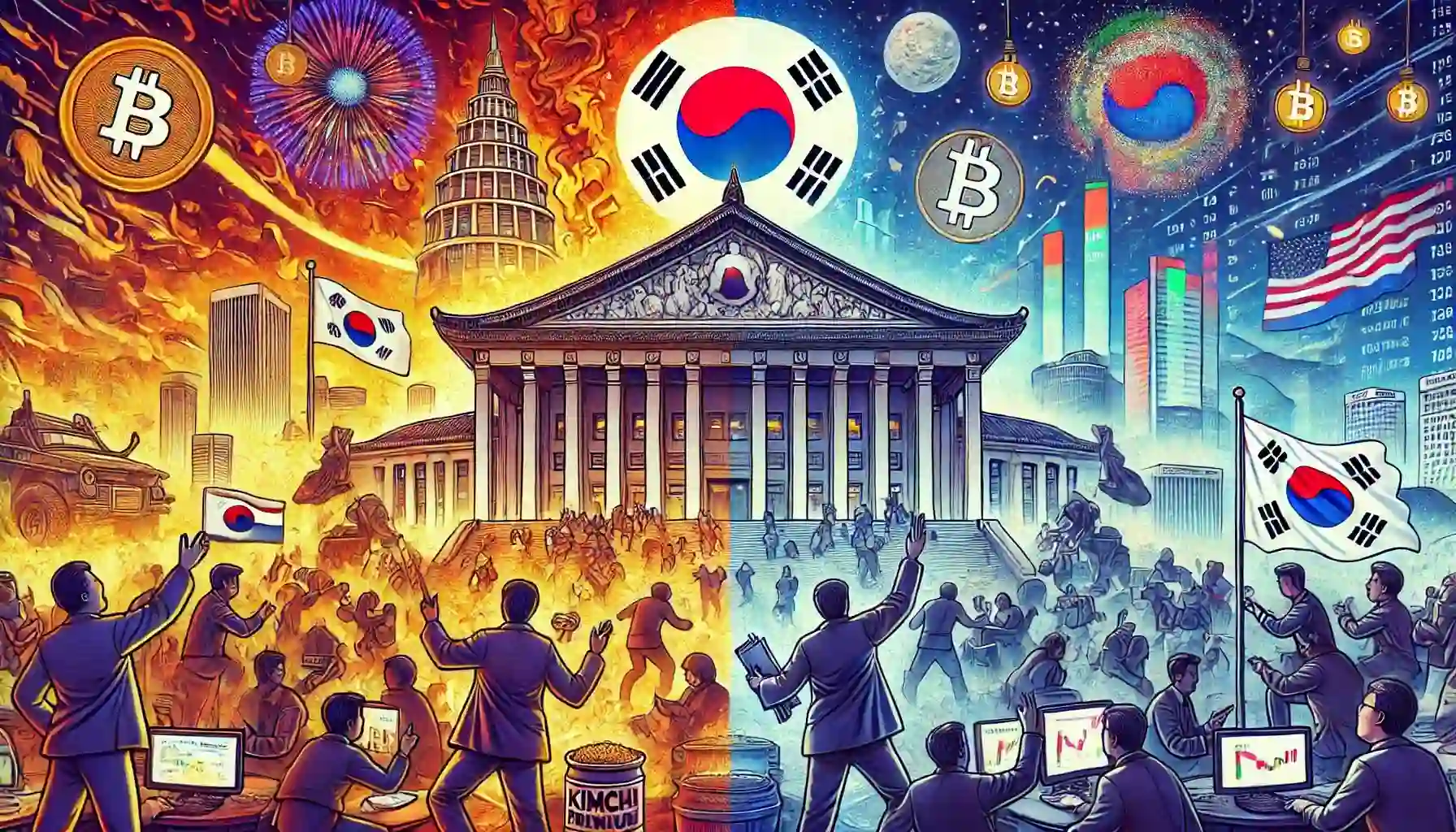The Kimchi premium, which measures the price difference between Bitcoin in South Korea and global markets, has shown a notable recovery post-Christmas. On December 27, it reached 3.83%, marking an improvement from the 5.26% recorded on December 22. Despite the decrease, this disparity highlights the unique dynamics of South Korea’s Bitcoin market.
Political Unrest Fuels Increased Bitcoin Demand
The resurgence in the premium coincides with ongoing political and economic upheaval in South Korea. Acting President Han Duck-soo was impeached just two weeks after Parliament impeached President Yoon Suk Yeol. This political instability has heightened fears of economic uncertainty, prompting South Korean investors to seek refuge in Bitcoin. The increased demand for Bitcoin has driven domestic prices above global averages.
Compounding the issue, the Korean won has been steadily devaluing, hitting its lowest exchange rate against the US dollar since February 2009. This devaluation has further fueled local interest in Bitcoin as an alternative store of value.
Volatility in the Kimchi Premium Throughout 2024
The second half of 2024 witnessed significant fluctuations in the Kimchi premium. Late November and early December saw the premium turn negative, primarily due to political instability. On December 3, President Yoon declared martial law, citing threats from political opposition. Shortly thereafter, Yoon and several government officials faced arrest and insurrection charges, culminating in an impeachment trial.
This turmoil spurred concerns over potential regulatory crackdowns by South Korean authorities. Stricter crypto regulations aimed at curbing speculative trading weakened local demand for Bitcoin. Simultaneously, global arbitrage traders took advantage of the price gap, increasing Bitcoin inflows to South Korea and stabilizing the premium. Market sentiment also shifted as South Korean traders became more cautious, especially as global Bitcoin prices stabilized.
Renewed Surge in December
By mid-December, the premium experienced a sharp rebound amid the impeachment of the acting president. This political chaos triggered concerns over economic stability and potential capital controls. As a result, investors turned to Bitcoin, driving demand higher and inflating local prices. The continued weakening of the Korean won added to Bitcoin’s appeal, solidifying the premium’s upward trajectory.
Speculative behavior further intensified during this period of uncertainty, compounding the premium’s rise. This combination of political, economic, and market factors created a perfect environment for the premium’s resurgence.
Global Implications of the Kimchi Premium
The impact of the Kimchi premium extends beyond South Korea. Elevated premiums often create arbitrage opportunities, encouraging traders to move Bitcoin into the country. This cross-border activity can trigger short-term market volatility as supply and demand adjust. Additionally, high premiums distort global Bitcoin price signals, as South Korea constitutes a significant share of global trading volume. Regulatory scrutiny typically follows these surges, with authorities aiming to mitigate speculative risks and protect retail investors.
A Barometer of Economic and Political Sentiment
Historically, the Kimchi premium has served as an indicator of South Korean market sentiment and macroeconomic conditions. During speculative booms like late 2017 and early 2021, the premium reached double-digit levels, reflecting surging retail demand. Conversely, negative premiums, as seen in mid-2024, aligned with tighter regulations and declining speculative activity. The recent rebound mirrors these historical trends but is driven by unique circumstances, including a political crisis and significant currency devaluation.
The post Kimchi premium recovers as KRWUSD drops to 15-year low appeared first on CryptoSlate.















